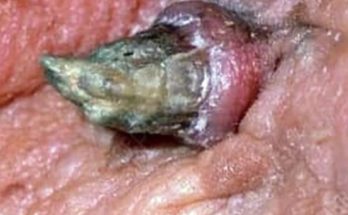STOP Buying These 15 Products After You Know What They’re Made Of
Some everyday products seem harmless at first glance, but their hidden ingredients or manufacturing processes might make you think twice about buying them.
Whether it’s due to ethical concerns, health risks, or shocking materials, here are 15 products you might want to reconsider after learning what they’re made of.
1. Gelatin
- What it’s made of: Gelatin is derived from animal bones, skin, and connective tissues, typically from pigs or cows.
- Where it’s found: Jello, gummy candies, marshmallows, and some yogurts.
- Why to avoid it: If you’re vegetarian, vegan, or concerned about factory farming, you might opt for plant-based alternatives like agar-agar.
2. Artificial Food Dyes
- What they’re made of: Some food dyes, like Red 40 and Yellow 5, are petroleum-based.
- Where it’s found: Candy, cereals, sodas, and baked goods.
- Why to avoid it: Studies have linked certain dyes to hyperactivity in children and potential health risks.
3. Processed Meats
- What they’re made of: Sausages, hot dogs, and deli meats often contain meat scraps, fat, and chemical preservatives like nitrates.
- Why to avoid it: High consumption has been linked to increased risks of cancer and heart disease.
4. Vanilla-Flavored Products
- What they can contain: Some artificial vanilla flavorings are made from castoreum, a secretion from beaver glands.
- Where it’s found: Certain vanilla-flavored candies, ice creams, and baked goods.
- Why to avoid it: While rare, the idea of consuming a beaver-derived product might be unappealing.
5. Lipstick
- What it’s made of: Many lipsticks contain carmine, a red pigment made from crushed cochineal insects.
- Why to avoid it: If you’re vegan or concerned about animal-derived products, look for cruelty-free brands.
6. Parmesan Cheese
- What it contains: Some Parmesan cheeses use rennet, an enzyme sourced from the stomach lining of calves.
- Why to avoid it: Vegans, vegetarians, or those concerned about animal welfare may opt for plant-based cheese alternatives.
7. Chewing Gum
- What it’s made of: Gum bases often contain synthetic rubbers or plastic-like polymers.
- Why to avoid it: If you’re concerned about ingesting synthetic materials, look for natural gum options.
8. Leather Products
- What they’re made of: Leather is processed animal hide, treated with chemicals like chromium.
- Why to avoid it: Animal welfare concerns and the environmental impact of leather production are major factors.
9. Makeup Brushes
- What they’re made of: Many brushes use animal hair, like sable, goat, or mink.
- Why to avoid it: Ethical concerns about how animals are treated make synthetic alternatives a better choice.
10. Sugar
- What it’s made with: In some cases, refined sugar is processed using bone char, derived from animal bones, to whiten it.
- Why to avoid it: Vegan or plant-based eaters may prefer unrefined or organic sugar.
11. Non-Stick Cookware
- What it contains: Non-stick coatings like Teflon can release toxic chemicals (PFAS) when heated to high temperatures.
- Why to avoid it: Long-term exposure to these chemicals has been linked to health risks like cancer and hormone disruption.
12. Air Fresheners
- What they contain: Many air fresheners use phthalates, chemicals linked to hormone disruption.
- Why to avoid it: Opt for natural alternatives like essential oils or DIY fresheners.
13. Sunscreen
- What it contains: Certain sunscreens have oxybenzone, a chemical that harms coral reefs and may disrupt hormones.
- Why to avoid it: Look for reef-safe, mineral-based sunscreens instead.
14. Processed Bread
- What it contains: Some breads include L-cysteine, an amino acid often derived from human hair or poultry feathers.
- Why to avoid it: If the idea of consuming hair-derived ingredients bothers you, choose natural or homemade bread.
15. Perfume
- What it contains: Some fragrances include ambergris, a substance derived from whale intestines.
- Why to avoid it: Animal-derived ingredients and synthetic chemicals can be a concern; opt for vegan or natural perfumes.
What You Can Do
If these hidden ingredients or manufacturing processes make you uneasy, don’t worry—there are often ethical, sustainable, or healthier alternatives for these products. Reading ingredient labels, choosing cruelty-free brands, and supporting sustainable companies can help you make better choices for yourself, the planet, and future generations.



